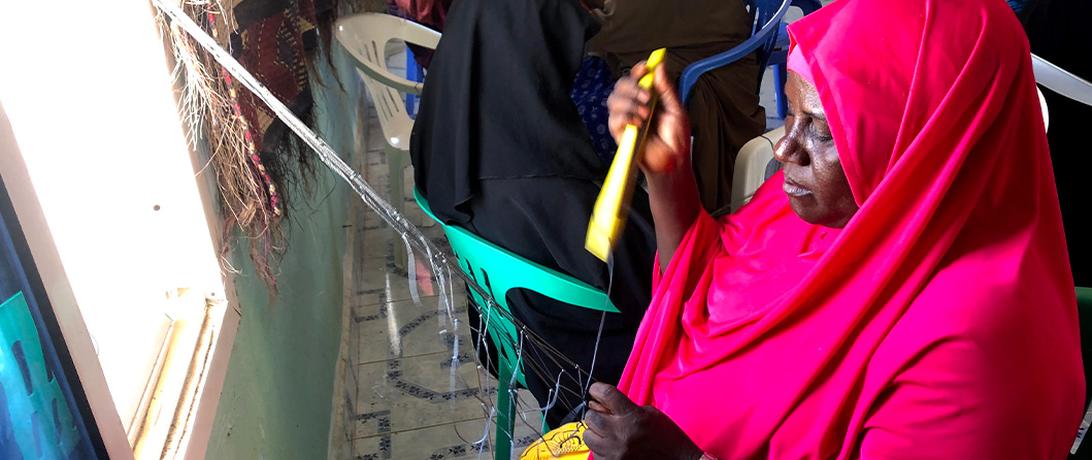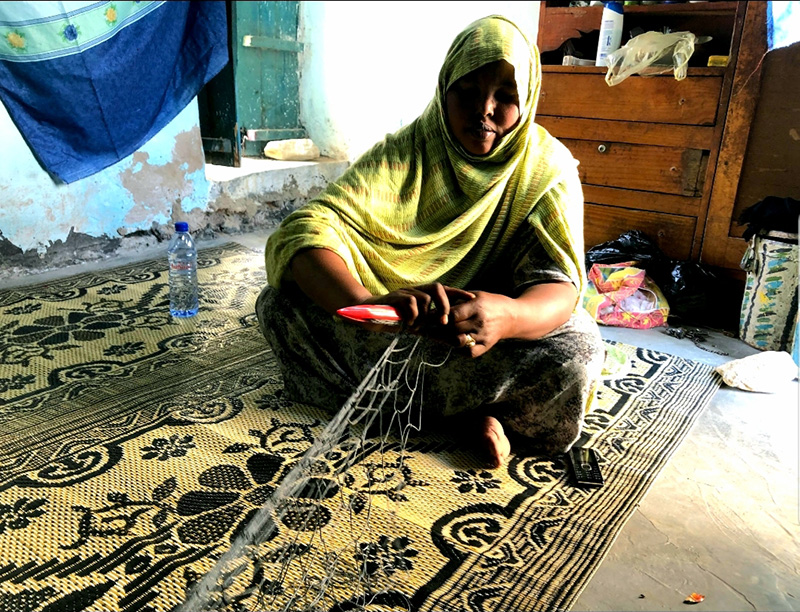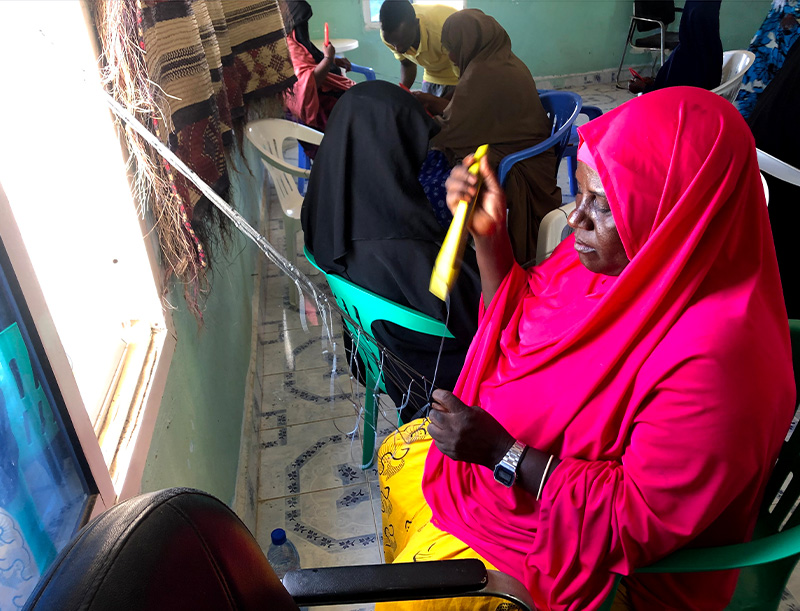
Nets are crucial to fishing - so training and promoting women in net-making and mending in local fishing communities. Secure Fisheries follows up with two women who attended a net-making workshop in Bander Beyla.
By Laura Burroughs and Mustafe Mohamoud
Images of Somali fishers often show them hauling nets of fish out of the water and into their boats. Invisible in these images are the people responsible for making and mending those nets, a service which is often provided by women, and an important part of the fishing economy. However, in many coastal communities, those skills are lacking, and many fishers must travel hundreds of kilometers to larger cities in order to buy nets or even have them repaired. This problem has been exacerbated by restricted mobility during COVID-19. Building net-making and net repair skills among women within fishing communities localizes the benefits by providing income to women to support their families and allowing men to spend more time using those coveted nets and less time traveling to get them fixed.
In 2019, the community of Bandar Beyla district, Puntland, had an opportunity to receive training on making nets. The eight-day training was attended primarily by women and was part of the community’s fisheries co-management initiative to support a healthy and sustainable fishing sector and economy. Community members had expressed a need to satisfy domestic demand for fishing nets and repairs. The training was led by a Somali woman with extensive experience in net-making.
The training also involved a “train the trainers” component in which two participants learned how to teach the skill to others in their community, maximizing the value of a single training and expanding entrepreneurial opportunities for the women involved. Secure Fisheries’ local staff followed up with two of the participants a few months later to see how the training has benefited them and their community.
 Nadiifo
Nadiifo
The training provided an important foundation for Nadiifo to develop net-making skills. Nadiifo soon began repairing torn nets for local fishers. Once she improved her skills, Nadiifo began to make nets from scratch and now makes two to three per week. Nadiifo has even started traveling to other fishing villages to sell and repair nets. She has taught ten women in her community how to make nets and is continuing to train others.
Demand is high and this has been a useful source of income for Nadiifo. She charges a few dollars to make or repair each net and this has enabled her to pay for food, schooling, and clothes for her children.
Bauxo
Bauxo comes from a fishing family and notes, “As a family, we are fully dependent on fishing. We don’t have any other livelihood income besides fishing.” Before the net-making training, her husband and sons would have to purchase nets, but Bauxo’s newly acquired skill is saving her family money. She is able to repair their torn nets and make new nets when necessary. Bauxo has now trained six women in her community in net-making.
Women face unique challenges in their roles along the fisheries value chain. They experience cultural, policy, and legal barriers to their employment. Compared to men, women have fewer opportunities to learn new techniques, and women and minority groups also face significant obstacles to accessing investment income. Somali women also grapple with threats to their physical safety in this male-dominated sector, and some worry about being assaulted in work environments that don’t have safety measures in place for women. But many, including Bauxo and Nadiifo, are also observing positive changes for women as the Somali region develops its fishing sector after years of conflict.
Nadiifo emphasizes that women can occupy critical roles in the Somali fisheries sector, especially in pre- and post-harvest work. The opportunities and the complex challenges facing women in the Somali fishing sector require solutions that invest in them, such as small loans for women in the sector, training in fisheries sustainability and technical skills like fish processing, and prioritization of women’s safety. Through these efforts, women net-makers can become not only visible, but integral to a thriving fishing economy in the Somali region.
Article Details
Published
Topic
Program
Content Type
Opinion & Insights
